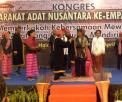- Home
- About
- Campaigns
- Regions
- Themes
- Agrofuels
- Climate justice
- Coastal communities and fisheries
- Disasters
- Economy & debt
- Energy
- Foreign investment
- Forests & forest fires
- Human rights
- Indigenous Peoples
- International Financial Institutions
- Land and food security
- Laws & regulations
- Mining, oil & gas
- Plantations
- Politics & democracy
- REDD
- Regional autonomy
- Transmigration
- Water and dams
- Women
- Publications
- Links
- Contact
Publication
- Newsletter articles (38)
- Special reports & briefings (7)
- Books (1)
- Photos and videos (4)
- Workshop resources (1)
- Fact sheets and updates (5)
- Press releases & position papers (7)
- Letters (8)
Campaign
- Climate Justice and sustainable livelihoods (8)
- MIFEE (3)
- Agrofuels and oil palm plantations (32)
- Coal (19)
- BP - Tangguh (3)
Indonesia







